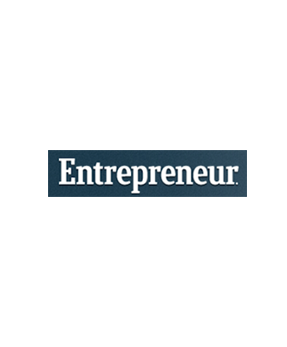
(This post originally appeared on Entrepreneur)
You are reading this article on Entrepreneur.com. This site publishes many articles targeted at those who are entrepreneurs. According to a definition in Investopedia, an entrepreneur is “an individual who creates a new business, bearing most of the risks and enjoying most of the rewards. Entrepreneurs who prove to be successful in taking on the risks of a startup are rewarded with profits, fame and continued growth opportunities.”
Seventeen-year-old Avi Schiffmann is an entrepreneur. But he’s a different kind of entrepreneur. He’s not in it for the profits, fame and continued growth opportunities. At least, not right now.
Schiffmann, a high school teenager who lives in Washington State, has attracted worldwide attention through his amazing Survival Rate Calculator website, which tracks critical information related to the coronavirus outbreak. Since launching the site during the early stages of the pandemic, Schiffmann’s web crawlers have been configured to pull in, parse and process real time data from the World Health Organization, Centers for Disease Control and other governmental websites and convert that data to show infections, deaths, recoveries and rates of change for all countries around the world. The site breaks down infections on user-friendly maps, provides health information and also attempts to calculate a survival rate of someone who contracts COVID-19, based on user-submitted health data of age, gender and other health factors.
Is the site popular? You bet. According to a profile of Schiffmann on Business Insider, the site attracts about 30 million visitors a day and 700 million total so far. Which brings me back to the reason why you’re reading this article. You’re probably an entrepreneur. So, like any reasonable entrepreneur you’re probably thinking, “Hey, this kid could monetize these visitors and make a fortune!”
And indeed, you’d be right. In fact, Schiffmann has already been offered $8 million from one company to take over his site and believes that he could probably be generating as much as $30 million just by selling ads. So take the money and run, yes?
No. Schiffmann has no intention of cashing in on the site. He doesn’t want to ruin the user experience with pop-ups, trackers and other features that may impede performance, particularly for people accessing the data from areas where internet speeds are slower. And besides, although he accepts contributions, he says he’s not doing this for the money.
“I’m only 17, I don’t need $8 million … I don’t want to be a profiteer,” he told Business Insider. Not taking the money seems kind of crazy to most entrepreneurs (I wonder what his parents think?). So is the kid crazy? Actually, not at all. And here’s why: Schiffmann clearly loves what he does. He doesn’t mind spending the countless hours it takes to maintain the site (and he certainly doesn’t mind skipping school to do so). But most importantly, he’s created something that’s providing valuable information to millions of people — Information that’s helping government and health officials make policy that potentially saves lives. And for him, that’s payment enough. At least for now.
But though only a teenager, Schiffmann has already discovered the most important thing about entrepreneurship that only the very best entrepreneurs I’ve met also know. It’s this: Wealth isn’t really just about money. It’s about knowledge and skills and reputation and accomplishments. In fact, making money as a first priority is generally not what many top investors desire in a potential partner. In his own way, Schiffmann has demonstrated some of the very key entrepreneurial attributes that these investors do long for: a high level of intelligence, dedication, the ability to commit and work hard with a vision of doing something that changes the world. And, best yet, he’s only 17.
“I plan to do many things in the future,” he told BI. “Now I know a ton of VCs and investors. If I started a company tomorrow, they’d at least read my business plan.” No doubt they will.

